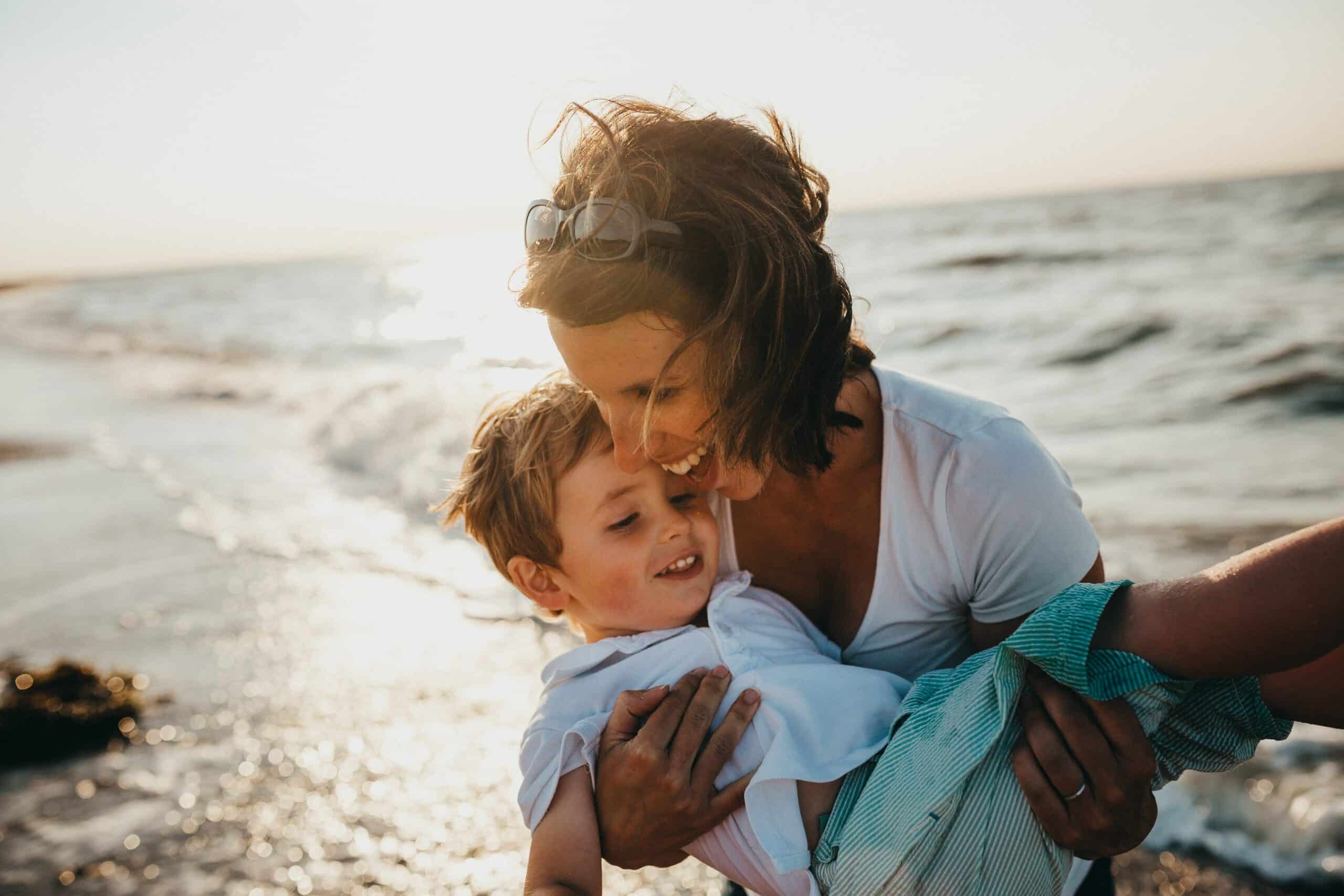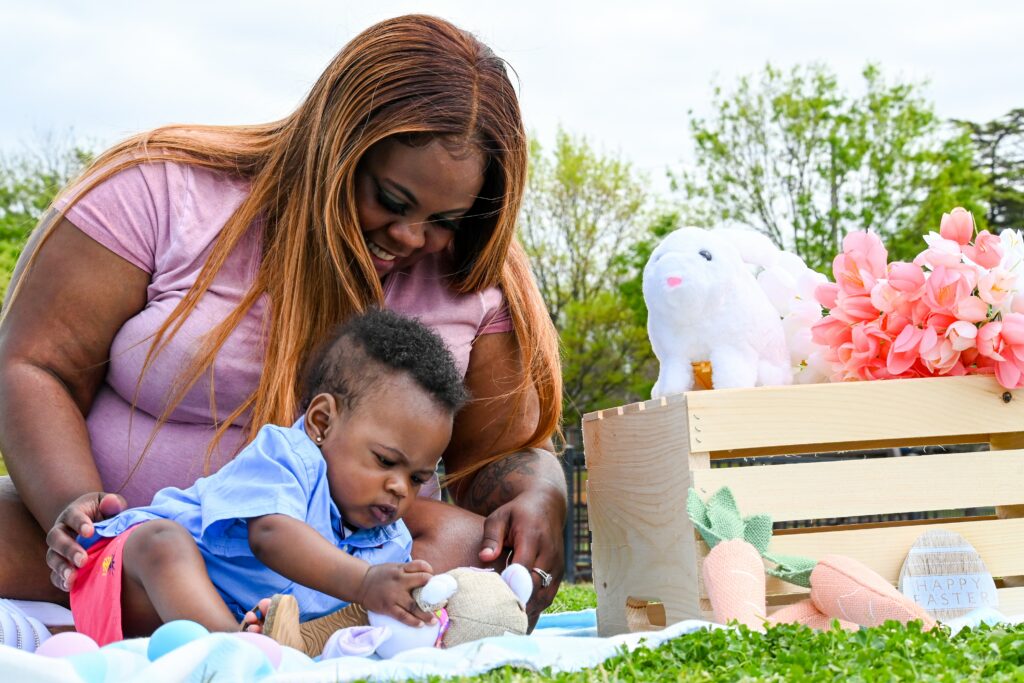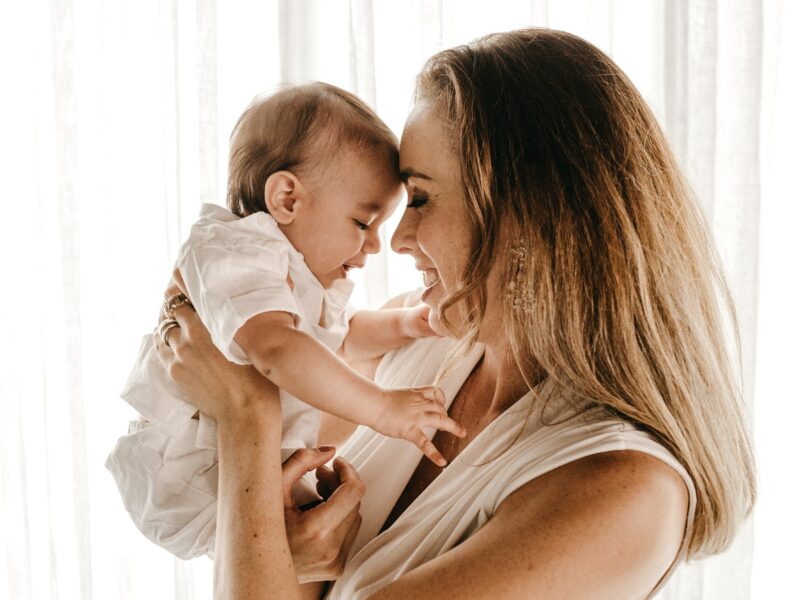While early language acquisition and development happens naturally and inherently, there are many techniques that parents and caregivers can practice to help little ones boost their speech from very early sound to forming words and sentences as they get older.
From the moment babies are born, we can begin interpreting their noises and vocalizations as their language and communication. Of course, at the very early stages of development, infants are reacting to their needs, letting you know when they’re hungry, tired, need to be changed or are otherwise uncomfortable, or are seeking your connection.
Now, wouldn’t it be nice if they just came with a translator!?
Even so, parents can begin having “conversations” with their babies from day 1. Not only does this help to build the bond but as an added bonus, it provides essential building blocks for eventual language development and back-and-forth conversations.
5 tips to get babies and toddlers talking

Mirror
From the first time you meet a new baby, you can start to mirror all the little (and not so little!) noises you hear. Simply mimic the baby’s sounds and take turns, just like you would in a real conversation. This will delight your baby to no end and create the foundational building blocks of a reciprocal conversation.
Talk, read, and sing to your baby.
- Take baby on tours of your home and describe everything like a museum guide.
- Making lunch? Describe what you’re doing, the foods, colors, and textures.
- Baby working on new skills? Narrate their actions like a sports announcer.
- Have hot gossip? Your baby’s the best secret keeper.
Admittedly, talking to someone who doesn’t respond can feel unnatural at first. Keep practicing and you’ll find your groove.
Again, try leaving a little space for baby to “respond” and help build the foundation of a full conversation. Read and sing, too. It doesn’t matter if you don’t like your voice—your baby does! Try reading and singing while facing your baby so you can look at each other. This gives you an opportunity to enjoy baby’s reactions while baby delights in seeing you and watching your mouth. Watching you will help your baby learn how sounds are formed and will help them start to form their language.
Once older babies start saying their first words, repeat them and expand on what they say.

- You can even incorporate approximations into this strategy. Word approximations aren’t quite full words but at least start with the right sound like “mmaaa” for mama, “mmmmii” for milk, or “uhh” for up.
- Honor your baby’s developing speech by saying, “Hi! Yes, that’s me! Mama’s here!” Or, “I hear you! You want MILK!”
- For toddlers who are stringing together more than one word (for example, “All done” or “More cookie”), help them expand their language further by engaging in the conversation.
- “Oh, I do see you’re all done! I think you really liked that cookie; it must have been delicious!”
Narrate what you see the baby doing during play.
If you’re doing tummy time, talk to your baby to make things more fun and interesting. Describe what you see and add your own special touch and humor.
- “Wow look at that beautiful baby in the mirror!
- Who is that!? Oh my goodness, is that you?? Is that [your baby’s name]?!! I see your eyes, your nose, and your mouth!”
- Point to the body parts in the mirror as you name them.
Be flexible and enthusiastic!
You can make this feel entirely like fun. Your babies and toddlers absolutely love talking to you; in fact, there are a few things they’d rank above having a conversation with you and your undivided attention.
They’re hanging on to your every word, sound, and facial expression. Speaking to them more and more using the techniques above shows your child just how much you too value the time you spend together in addition to helping them build their language development. Enjoy!
Dr. Ellen Kolomeyer is based in Plantation, FL, and provides virtual services to clients who live throughout Florida. In her practice, Unpolished Parenthood, Dr. Kolomeyer offers one-on-one therapy, strategy sessions, and personalized programs. Call 305.619.3264 or message Unpolished Parenthood today to get started.

